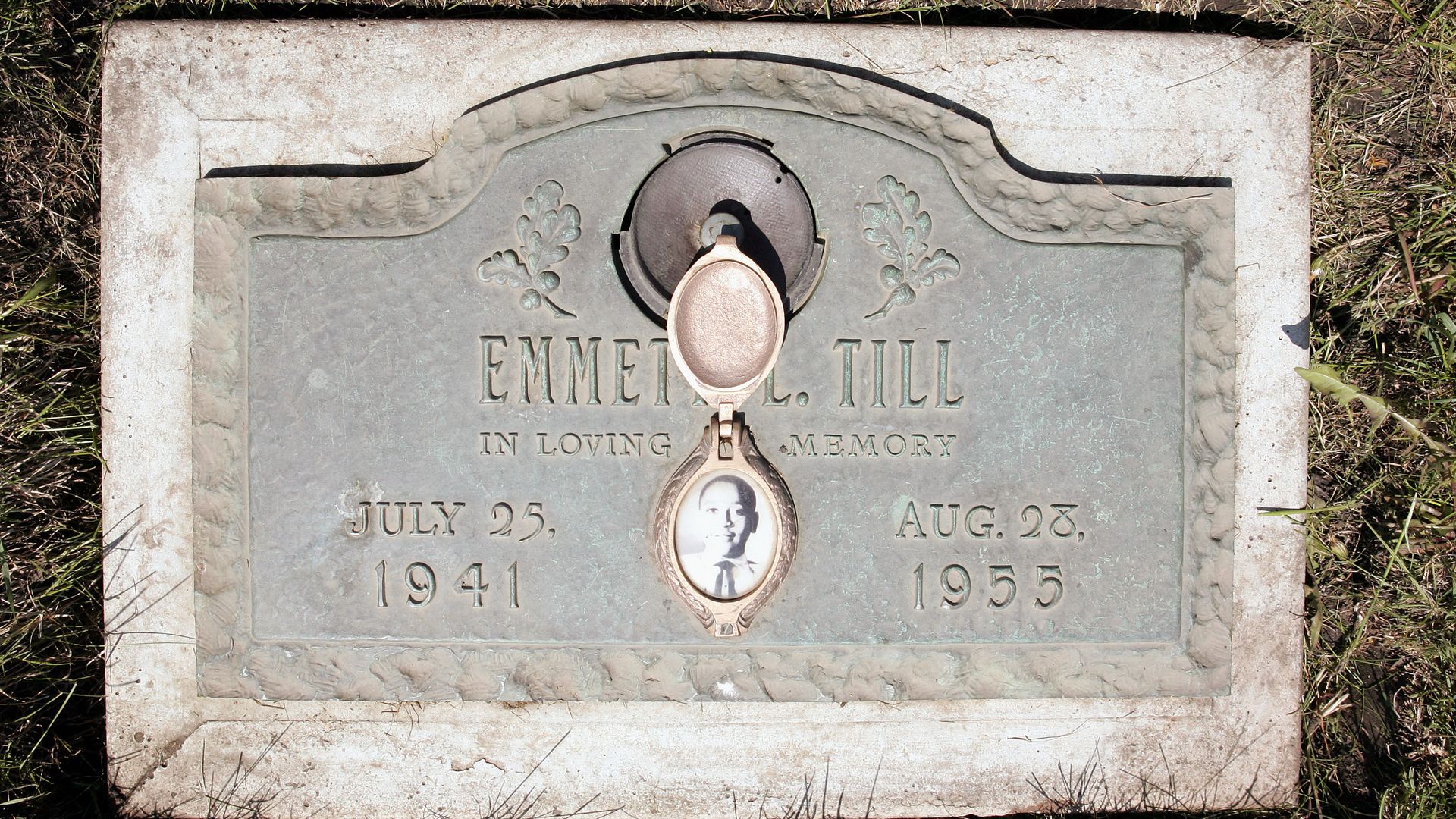Jun 29, 2022 - Politics & Policy
Discovery of 1955 warrant in Emmett Till's murder sparks calls for arrest
Add Axios as your preferred source to
see more of our stories on Google.

A plaque marks the gravesite of Emmett Till at Burr Oak Cemetery on May 4, 2005 in Aslip, Illinois. Photo: Scott Olson via Getty Images
